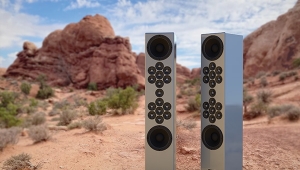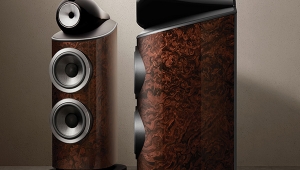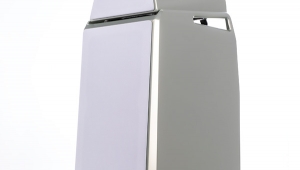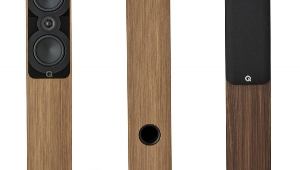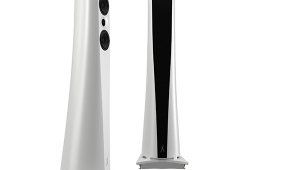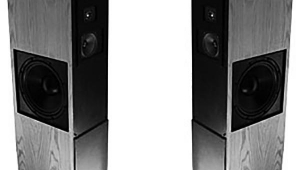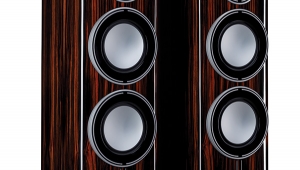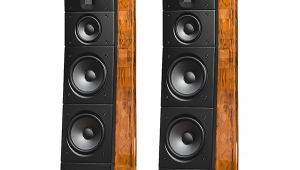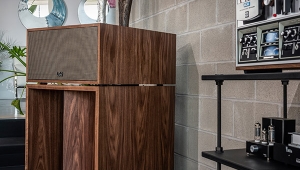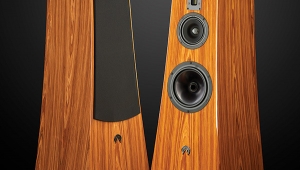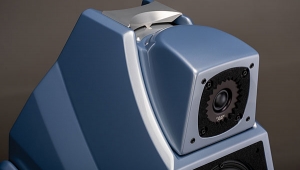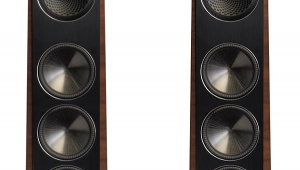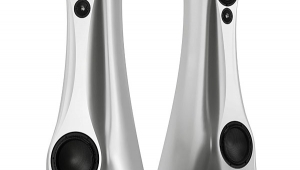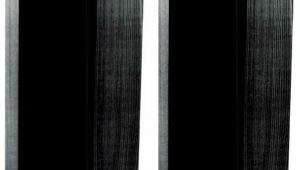| Columns Retired Columns & Blogs |
ProAc Response 3.8 loudspeaker Page 3
The other CD that illustrated the Response 3.8s' spaciousness was Diana Krall's Love Scenes (Impulse! IMPD-233). This recording features a much more intimate acoustic, best revealed in Krall's rendition of the well-known Gibbons-Dyrenforth standard, "Garden in the Rain." While this track lacks the cavernous depth of soundstage heard on Rutter's Requiem, there is an effortless openness and spaciousness, especially for a studio recording. Krall's piano is spread from speaker to speaker, with Russell Malone's soft, amplified guitar to the left and Christian McBride's bass dead center. Krall's voice—soft, sweet, with just a touch of a whiskey rasp—was placed just above and about a foot behind the 3.8s. Her voice had tremendous richness and timbral verity. The qualities heard on this recording—a clean, neutral midrange, effortless dynamics, and "highs that never called attention to themselves" (see JE's article on the ProAc Response Four Signature, Stereophile, May 1994, Vol.17 No.5)—were heard again and again as I sampled my pile of most-played CDs.
The realistic, riveting quality of Krall's voice illustrated another characteristic of the Response 3.8—its frequency balance. Free of anomalies and colorations, the 3.8's timbre was rich but natural. Willie Nelson's voice on "Getting Over You" and "What Was it You Wanted," from his Across the Borderline CD (Columbia CK 52752), was clear and free of grain, honk, or hollowness. This midrange purity enabled me to follow vocalists even when they had loud instrumental accompaniment. Whether it was the chorus singing Rutter's Requiem, Sinead O'Connor duetting with Nelson on "Don't Give Up" on Across the Borderline, or Emmylou Harris' thin, birdlike voice above bass-synthesizer grunge on "Deeper Wells" (Spyboy, Eminent EM-25001-2), I could easily understand the words being sung. This understanding, plus the Response 3.8's clear, transparent mids and highs, allowed me to be effortlessly swept into the music.
Although I've emphasized the Response 3.8's phenomenally clean midrange, its bass response, too, was outstanding. Commenting on the ProAc Response 2.5's bass, MF said, "But for the very bottomy bottom, the Response 2.5 gave me all the bass a non-organ-loving music lover could want." (January 1996, Vol.19 No.1). Well, Michael, things have just gotten even better. The deep pipe-organ pedal chords on "Gnomus," from Jean Guillou's organ transcription of Mussorgsky's Pictures at an Exhibition (Dorian DOR-90117), shook my room, set cabinets vibrating, and provided plenty of bass room-lock.
The same deep, solid, massive pipe-organ notes were heard on César Frank's Pièce héroïque, from Marcel Dupré's Recital CD (Mercury Living Presence 434 311-2). The soundtrack from My Cousin Vinny (Varèse Sarabande VSD 5364) had slam, punch, and drive. The very low synthesizer pulses on the Casper soundtrack (MCA MCAD-11240) and the pipe-organ chords on Elgar's Dream of Gerontius (Test CD 2, Stereophile STPH004-2) were heard as clearly through the Response 3.8 as through the $15,000/pair Revel Salon, which gives the finest deep bass of any floorstanding loudspeaker I've had in my listening room.
Stand-up bass was superb, producing vibrant, energetic, finger-snapping pulses that gave popular music real pace'n'rhythm, as heard from the title track of Natalie Merchant's One Fine Day (Columbia CK 53146), or from Diana Krall's Love Scenes. Bass-drum beats had a solidity, speed, and impact that were startling, almost scary. Even when I knew the drum was about to play—as at the beginning of "Assault on Ryan's House," from James Horner's Patriot Games soundtrack (RCA 66051-2), or the beginning of "Prelude and Aztec Dance" from Reed's La Fiesta Mexicana (Fiesta, Reference Recordings RR-38CD)—I still was startled every time I heard it over the Response 3.8.
- Log in or register to post comments
